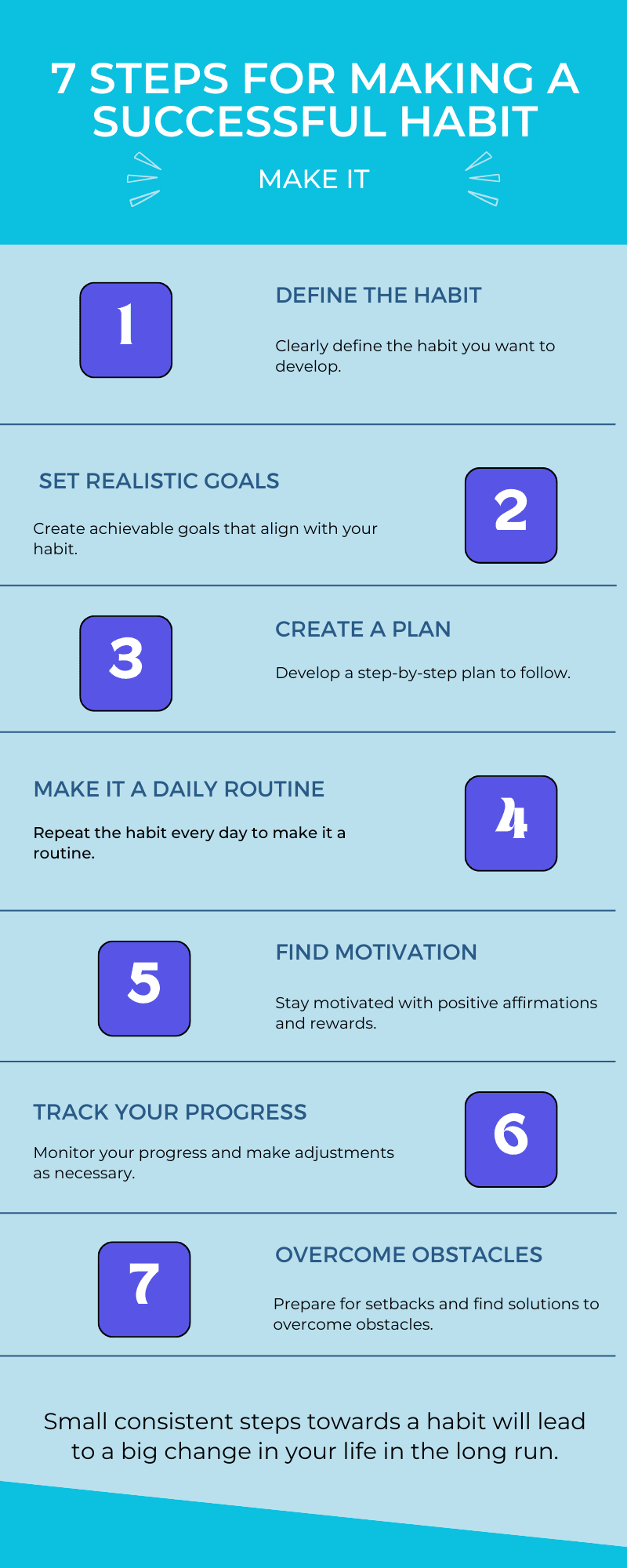Table of Contents
Our everyday lives depend heavily on our habits. Whether it’s going to the gym after work or cleaning our teeth every morning, they help us remain on track and accomplish our goals.
How long does it really take to form a habit, though? Is it accurate to say that it takes a habit 21 days to form?
This article will look at the process of habit building and the elements that affect it.
What is a Habit?
A frequent repetition of an action that usually happens unconsciously is called a habit. Our brains effectively operate on autopilot when we engage in a habit, allowing us to save mental energy and concentrate on other things.
How Long Does It Really Take to Form a Habit?
The timeline for habit formation is much more complex than the popular belief that it takes 21 days to form a habit. Instead, it occurs over a considerably longer period of time.
According to research that appeared in the European Journal of Social Psychology, it usually takes participants 66 days to develop a new habit.
The timetable, however, varied greatly depending on the individual and the condition at hand. While some individuals were able to develop behaviors in as little as 18 days, others needed up to 254 days.

Factors that Influence Habit Formation
Because there are so many parameters that might affect how long it takes to create a habit, there is no set timeframe for habit formation. Motivation, consistency, and the difficulty of the habit are a few of these variables.
Motivation: You might be able to develop a new habit more rapidly if you’re extremely driven than if you’re not. The more motivated you are, the more likely you are to stick with the habit, even when it is difficult.
Consistency: To establish a habit, one must be consistent. You are more likely to strengthen the neural connections in your brain that support the habit if you are consistent in your behavior.
Difficulty of the Habit: It may take longer for certain habits to become habitual than others. For instance, it could take longer to develop the habit of picking healthy snacks if you’re attempting to break the one of munching on junk food every afternoon.
Tips for forming habits More Quickly
There are several methods you can employ to hasten the process of habit building, despite the fact that it might take a broad range of times. The following advice can help you create habits more quickly:
Set Clear Goals: What you hope to achieve with your new habit should be made very clear. This will support your motivation and attention as you try to establish the habit.
Track Your Progress: Keep note of how frequently you engage in the action you’re attempting to make a habit of. You may use this to keep yourself motivated by being able to see how far you’ve come.

Make it a priority: Approach habit creation like any other critical job on your list; make it a non-negotiable component of your daily schedule by setting aside time each day to work on your habit.
Be Consistent: To establish a habit, one must be consistent. In order to strengthen the neural pathways in your brain, try to practice your new habit at the same time every day and in the same setting.
Conclusion
Developing new habits might be difficult, but it’s crucial for personal development. Depending on the person and the desired behavior, different habits take different amounts of time to establish.
You may hasten the process and make long-lasting, beneficial changes in your life by establishing specific goals, monitoring your progress, and prioritizing your habit.
It is a fallacy that it takes 21 days to establish a habit. Start establishing those new habits now since the sooner you do so, the sooner they will become routine.






Thank you for your sharing. I am worried that I lack creative ideas. It is your article that makes me full of hope. Thank you. But, I have a question, can you help me?